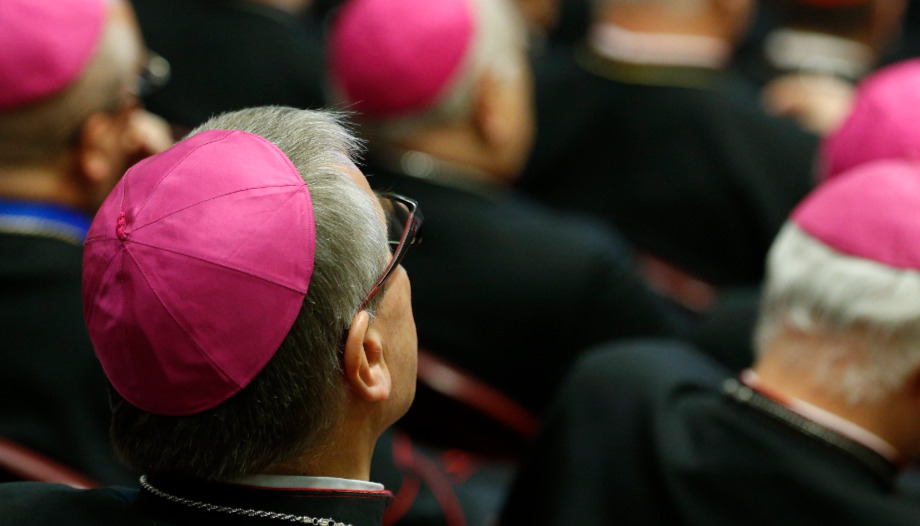The meaning and horizons of a Synodal ChurchThe following are some of the themes of the course: education for synodal leadership; crisis management, with special attention to abuse; the Church in post-modern society after the pandemic; canonical experience for the administration of a diocese; living in the media world beyond the technocratic paradigm; the family and universal fraternity; episcopal holiness in the Catholic communion. These are the topics of the annual course promoted by the Dicastery for Bishops together with the Dicastery for the Oriental Churches, for the formation of newly ordained prelates.
Dedicated to the theme "Proclaiming the Gospel in a time of change and after the pandemic: the service of the bishop," the seminar began last Thursday, 1 Thursday, at the Ateneo Regina Apostolorum, with a Mass presided over by Cardinal Secretary of State Pietro Parolin. Due to the large number of prelates participating, a total of 344, two rounds will be held this year. In the first round, 154 bishops participated: 109 from the territories under the jurisdiction of the Dicastery for Bishops called to the episcopate between August 2019 and August 2020, and the remaining 45 from the dioceses referred to the Dicastery for the Oriental Churches.
Among others, several heads of dicasteries participated as speakers.
Training for bishops
The idea that inspired the organization of the course - emphasizes a communiqué from the Holy See - "arose from the desire to facilitate for the bishops a collegial reflection on their ministry in the current context of the Church on the synodal journey, within a world shaken by the painful geopolitical changes that are taking place". What pastors do the people of God need today? What spiritual traits should qualify their identity as believers and animate their pastoral charity?
People evaluate our credibility as ministers by the interior serenity with which, even in adverse circumstances, we know how to transmit the "joy of the Gospel". In fact, it is the latter, the true compass of the pontificate of Francis since the Apostolic Exhortation Evangelii Gaudium, that guides our discernment. A joy that is neither random nor shaped by external contingencies, but which finds substance and meaning in the life of Jesus.'
In this perspective of service, as Cardinal Prefect Marc Ouellet repeated during the Mass in St. Peter's Basilica on September 8, "these are days of concrete learning of the meaning of the belonging of each Bishop to the College of the Successors of the Apostles, 'cum Petro et sub Petro`. It is a week of sacramental fraternity that symbolizes the communion of all these missionary disciples, called to the fullness of the priesthood, for the pastoral service of the People of God in their journey through history".
Getting to know the Holy See
Concrete learning is also favored by getting to know the institutions of the Church and the people who serve in them. In this sense, the Dicastery for the Oriental Churches, by welcoming the group of 45 newly ordained bishops belonging to the Churches and territories under its jurisdiction, allowed the Superiors and Officers to meet the new bishops, offering them at the same time the opportunity to get to know the faces and names of those in Rome who work in the service of their Churches in the name of the Holy Father.
On the morning of Friday 9, Cardinal Prefect Leonardi Sandri presided over the Eucharistic celebration in the Latin rite, delivering the homily, followed by a working session in which the functioning of the Dicastery and its place within the Apostolic Constitution were presented. Praedicate Evangelium with a report by Archbishop Giorgio Demetrio Gallaro, Secretary. A space was dedicated - according to a note from the Dicastery - to administrative matters, with an explanation of how it is also possible to support the respective Churches materially thanks to the contributions of a number of benefactors, in particular the Holy Land Collection, the CNEWA and a small percentage of the Missionary Collection.
Practical issues
The occasion was also an opportunity to underline the importance of having clear criteria of transparency, taking advantage of all the forms of consultancy and collaboration also in the economic field provided for by ecclesiastical law.
During the sessions - the communiqué of the Dicastery for the Oriental Churches continues - mention was also made of the planned development of two computer platforms for the management of grants and ROACO (Riunione Opere Aiuto Chiese Orientali) projects with the collaboration of the Data Processing Center of the Secretariat for the Economy, the creation of a connection and communication site for the Oriental Churches and the need to guarantee social security forms for elderly or sick priests in very poor or under-served contexts.
Audience with the Pope
Received in audience on September 8 by Pope Francis in the Clementine Hall, the participants in the seminar "were able to experience an authentic moment of communion with the Successor of Peter, sharing the experience of his ministry and drawing inspiration from the Pope's wise discernment on the various questions that were put to him".
Recalling the Holy Father's address to the bishops of the mission territories exactly four years earlier at a seminar of the Congregation for the Evangelization of Peoples. The healthy concern for the Gospel at the origin of his heartfelt appeal: "Dear brothers, be wary, I beg you, of the lukewarmness that leads to mediocrity and laziness, that 'démon de midi'. Beware of that. Be wary of the tranquility that shuns sacrifice; of the pastoral haste that leads to impatience; of the abundance of goods that disfigures the Gospel. Don't forget that the devil enters through the pockets, hey! Instead, I wish you a holy restlessness for the Gospel, the only restlessness that gives peace".









